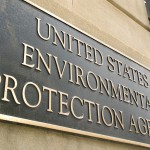Have you ever dreamed of pulling in your salary and performance bonuses while you sit at home and pursue hobbies? If so, a career with the EPA might be right up your alley.
Pulling off such a ruse is a simple process:
- Step 1: Come up with a flimsy story about being an undercover operative for the CIA.
- Step 2: Create “missions” that require you to be away from your office for months at a time. Then spend that time at home.
- Step 3: Bill your personal luxury travel to the American taxpayer and convince your bosses to sign off on these extravagant expense reports.
Just don’t try Step 4—retire, but still remain on the government payroll. That’s the step that eventually earned former EPA climate change scientist John Beale a federal investigation and 32 months in prison.
Such a rouse only works at an agency with lax administrative oversight. EPA Assistant Inspector General Patrick Sullivan doubted such gross misconduct could have gone unnoticed at other federal agencies:
There’s a certain culture here at the EPA where the mission is the most important thing. They don’t think like criminal investigators. They tend to be very trusting and accepting.
Not only did his bosses at the EPA fail to discover his spy rouse, but they never checked out his claim that he had a lingering case of malaria from his service in Vietnam that necessitated an $8,000-a-year handicapped parking space for free. Beale never even served in the Vietnam.
Beale ultimately defrauded the EPA of over $900,000. Current EPA Administration Gina McCarthy served as Beale’s boss and apparently never batted an eye at his deception.
Shouldn’t it raise a few red flags that the very people drafting regulations to increase household electric bills by thousands of dollars annually aren’t concerned with signing expense reports for luxury hotels and first-class air travel? Clearly EPA administrators have no issue wasting taxpayer money—especially when it helps their “mission”—so we shouldn’t be surprised they aren’t concerned with the economic ramifications of their regulations.
Read more about the EPA’s failure to consider the economic impact of its regulations here.





